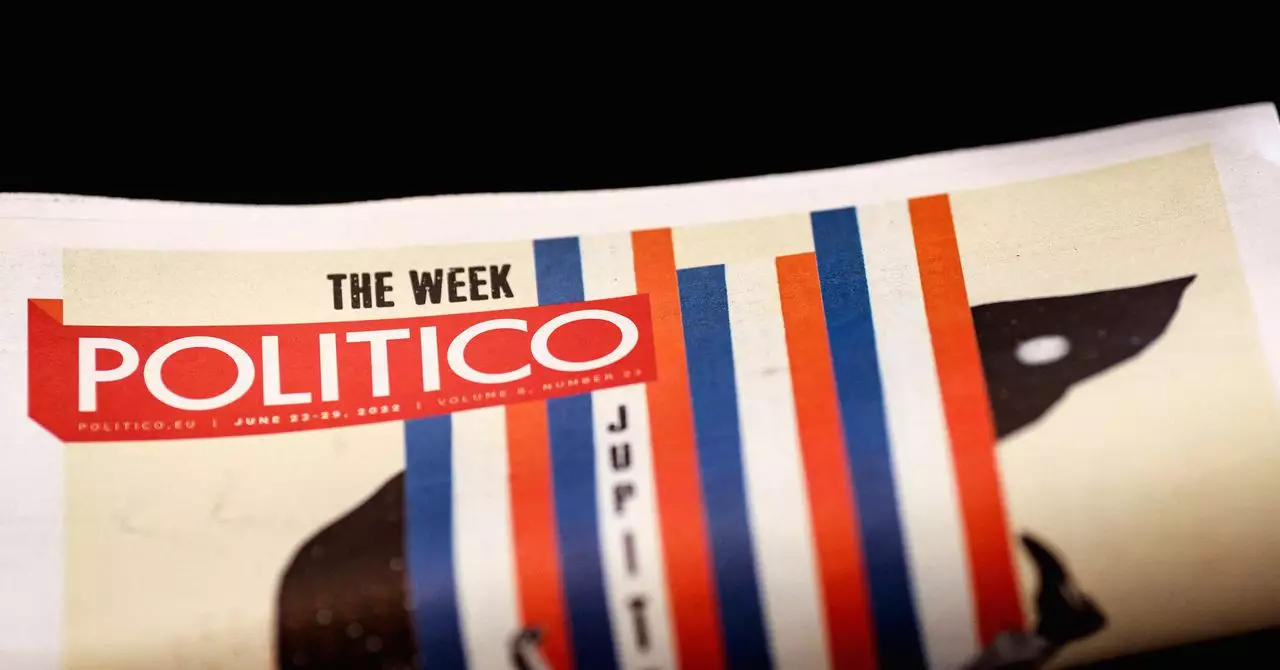In the landscape of modern journalism, the introduction of artificial intelligence (AI) is not merely a trend but a seismic shift that has begun to redefine how news is produced and consumed. Among the vanguards of this transformation is Politico, a leading news organization that has made headlines not only for its political reporting but also for its pioneering union efforts. The PEN Guild, which comprises journalists at both Politico and E&E News, is on the brink of a significant legal battle that could reshape the terms under which AI operates within the journalism sector. As AI tools increasingly infiltrate editorial processes, the question arises: how much autonomy should journalists retain over the technologies impacting their work?
The Union’s Challenge to Management
The PEN Guild’s allegations against Politico reveal a deeper tension between innovation and labor rights within the media industry. At the crux of the dispute is the claim that the use of AI tools, such as the recently launched Policy Intelligence Assistance, breaches contractual agreements that require prior notice of any technology implemented to affect staff duties. Union officials argue that the management’s failure to consult or negotiate undermines not only their job security but also the ethical standards that journalism upholds. Ariel Wittenberg, chair of the union, emphasizes that their struggle is not merely about compliance with agreement provisions but about asserting the rights of journalists in a rapidly evolving digital landscape.
While Politico maintains that it is committed to ethical journalism and upholds its collective bargaining responsibilities, one cannot ignore the growing wariness among reporters regarding the implications of AI. This unease stems from reported instances where AI-generated content not only misrepresented facts but also employed language that might be deemed controversial or disrespectful. Issues like these highlight a critical gap in AI oversight and raise anxieties about the potential erosion of journalistic integrity.
The Ethical Quagmire of AI
As AI tools promise faster and more efficient news delivery, they simultaneously raise ethical questions about accountability and discernment in reporting. Politico’s union members argue that the integration of AI must not sidestep the principles of journalism, particularly when algorithms are making editorial choices about language and content framing. This raises further concerns about bias, accuracy, and the responsibility of human oversight in an era where automated systems have become commonplace.
The ramifications of relying on AI for news summaries and analyses are vast. Instances of AI erroneously attributing political actions to figures incorrectly underline a fundamental flaw in the reliance on machine-generated content without sufficient editorial review. The union’s vice chair, Arianna Skibell, has pointed out these discrepancies, emphasizing that unlike human reporters, AI lacks the contextual understanding necessary to navigate complex social and political issues sensitively.
A Legal and Ethical Precedent
Should the PEN Guild succeed in its arbitration against Politico, the ruling could establish a landmark precedent regarding the intersection of journalism, labor rights, and technology. As fewer federal regulations govern AI’s role in various sectors, the significance of union contracts in ensuring responsible AI practices becomes ever more pronounced. Jon Schleuss, the president of the Newsguild, stresses that these contracts could serve as one of the few effective mechanisms to hold organizations accountable as they embrace transformational technologies like AI.
The outcome of this confrontation will likely resonate beyond the walls of Politico and E&E News, sending ripples through the larger journalistic community and potentially influencing other media organizations that are weighing the integration of AI into their operations. The decision could also inspire a broader societal discourse about the responsibilities corporations have in safeguarding ethical practices amidst technological advancements.
The ongoing conflict between Politico and the PEN Guild encapsulates the broader dilemma many media outlets face: how to navigate the evolving landscape while preserving the core values of journalism. With AI now firmly at the forefront of newsroom operations, the central issue is not merely technological adaptation but ensuring that the human element—the intuition, ethics, and understanding that underpin quality reporting—remains intact. As the arbitration progresses, it will undoubtedly offer valuable insights into the future of journalism amid this digital revolution, signaling a critical juncture for the industry as a whole.

